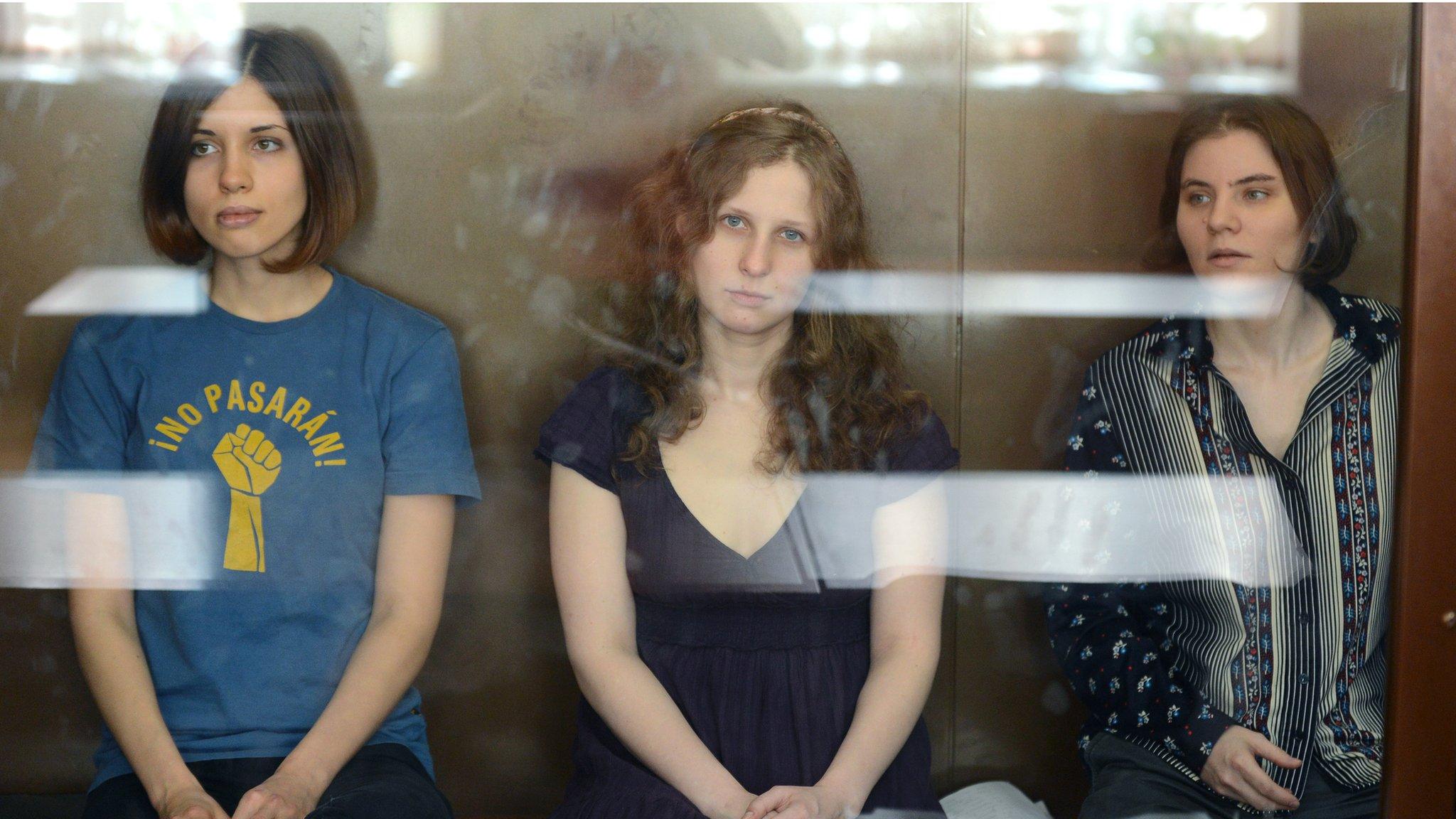Putin critic gets suspended sentence
- Published
Alexei Navalny says the case against him was always politically motivated
Russian opposition leader Alexei Navalny has avoided jail after being convicted in a high-profile fraud case.
Navalny was given a suspended prison sentence of three-and-a-half years for defrauding two firms.
But his brother Oleg is facing a three-and-a-half year custodial sentence.
Navalny has consistently said the charges were politically motivated. He accused President Vladimir Putin's government of targeting the relatives of his opponents.
The brothers were convicted of stealing 30m roubles (£334,600; $518,100) from the firms, one of which is an affiliate of French cosmetics giant Yves Rocher.
They have also been fined 500,000 roubles (£5,460; $9,030) each and have been ordered to pay some 4m roubles in damages.

In court - Steve Rosenberg, Moscow correspondent
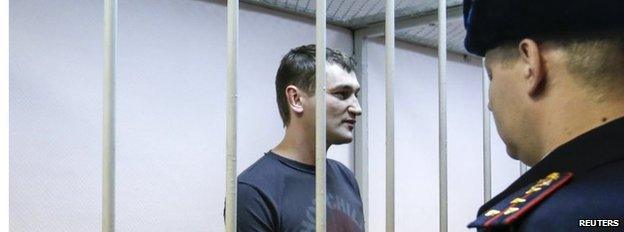
Alexei Navalny's younger brother Oleg has been sentenced to jail for three-and-a-half years
Alexei Navalny is the opposition figure the Kremlin fears most. A charismatic anti-corruption campaigner turned political activist and a vocal critic of Vladimir Putin.
The case against him was widely seen as politically motivated. And because his brother was also on trial he had accused the authorities of trying to take his family members hostage to get at him.
Both men were found guilty of embezzling money, but while Alexei was given a suspended sentence his brother was sent to jail.
Alexei Navalny was visibly shocked: "Why are you jailing him?" he shouted at the judge. "Just to punish me even harder?"
On leaving the courthouse, Navalny accused the authorities of torturing and destroying the relatives of their political opponents. The regime, he said, must be destroyed.

'Political pressure'
Prosecutors had demanded 10 years in prison for Alexei Navalny and eight years for his brother Oleg.
Navalny denounced the verdict as political "pressure". He tweeted in Russian, external: "Of all of the possible types of sentence, this is the meanest."
His lawyer, Olga Mikhailova, said that the sentence was the "worst moral torment" that could have been given.
Navalny led mass protests against Mr Putin's government in 2011 and 2012.
Some of his opponents criticised the brothers' sentences as too light and said prosecutors should launch an appeal.
Mikhail Markelov, a prominent MP from Putin's United Russia party, told Tass news agency: "Everything should be done to achieve reconsideration of this sentence."
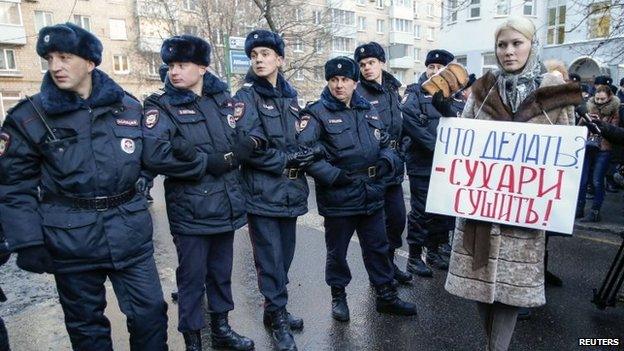
Alexei Navalny led huge anti-corruption protests in 2011
Tuesday's verdict is the latest in a series of criminal cases against Navalny, which he says are fabricated to neutralise his influence.
In 2013 he came second in Moscow's mayoral election, supported by 27% of voters.
Mr Navalny is already under house arrest, serving a five-year suspended sentence for the alleged theft of 16m roubles from a timber firm in 2009.
The latest verdict was due to have been announced next month, but the court session was moved forward to Tuesday after thousands of his supporters announced plans for a big protest rally on 15 January.
After sentencing Navalny called on his supporters to "take to the streets today". Navalny himself is not allowed to attend the protest as he remains under house arrest.
Thousands have already said on Facebook , externalthat they plan to attend a rally in Moscow's Manezh Square, near the Kremlin, at 19:00 (16:00 GMT).

Media silence - by Stephen Ennis, BBC Monitoring
Kremlin-controlled TV channels have almost completely ignored the verdict in their main news bulletins, largely confining mentions of the anti-corruption campaigner and his co-defendant and brother to their specialist crime shows.
On Tuesday morning there was an almost complete TV news blackout on the sentences, with only the small liberal channel Dozhd and business channel RBK giving them prominence.
On social media, though, there has been a flood of anger and outrage, with many users accusing the authorities of taking Oleg Navalny "hostage". One user likened his sentencing to the reprisals taken against the family of terror suspects in Chechnya.

- Published30 December 2014
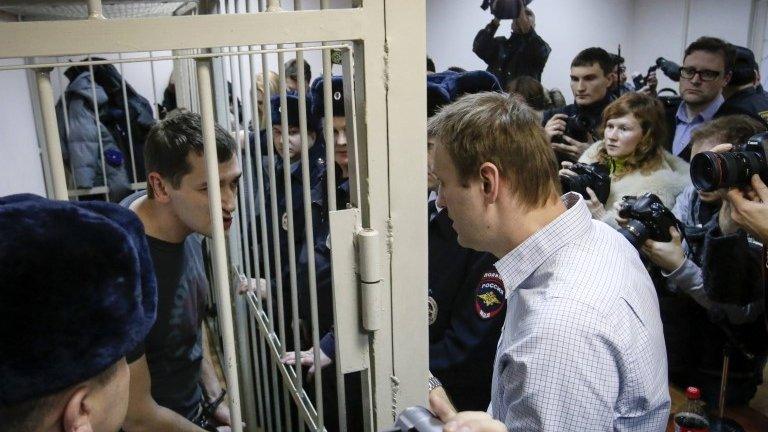
- Published30 December 2014
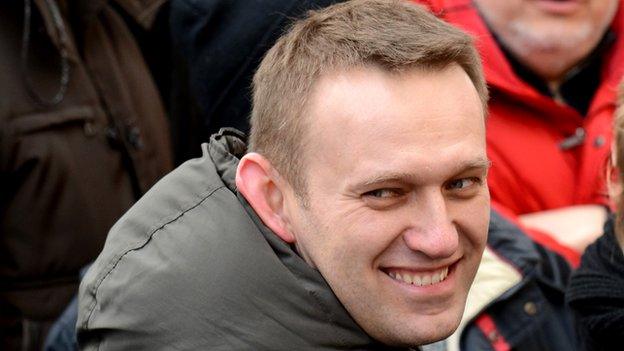
- Published16 February 2024
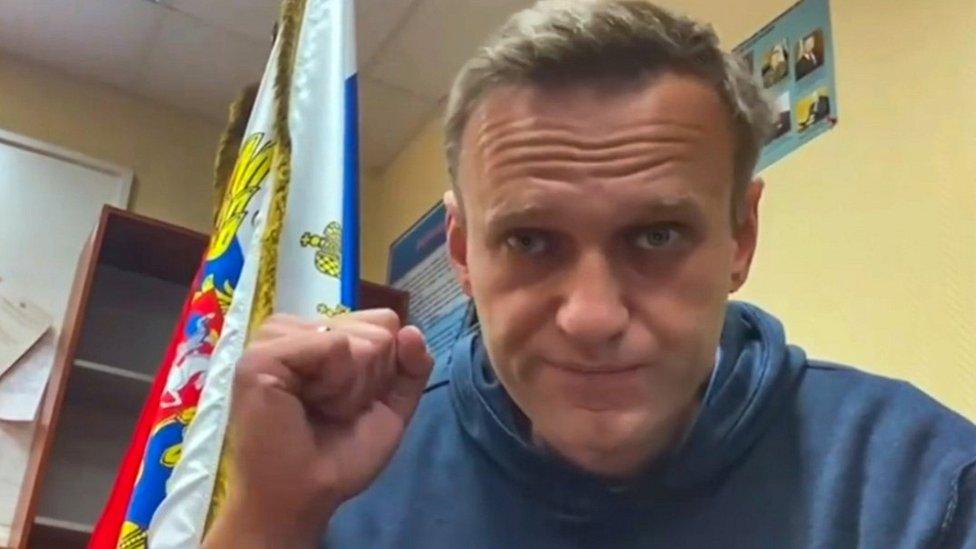
- Published24 April 2014
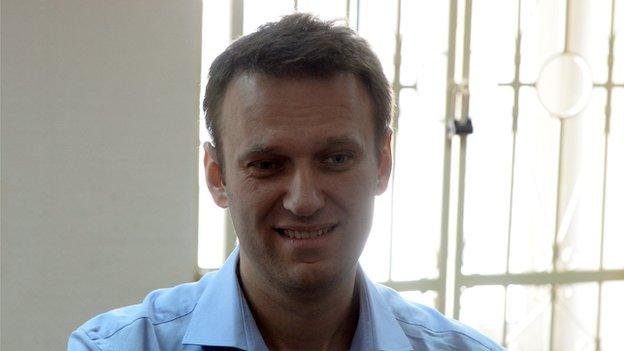
- Published25 July 2014
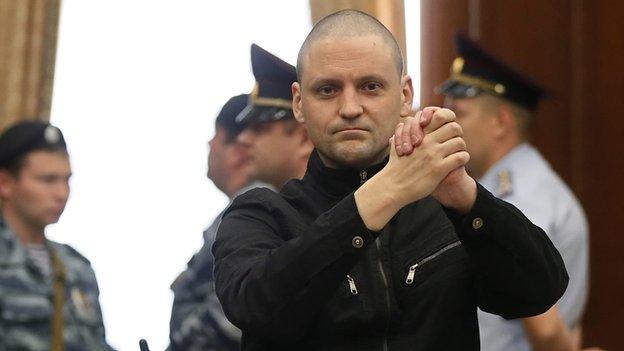
- Published18 July 2013
